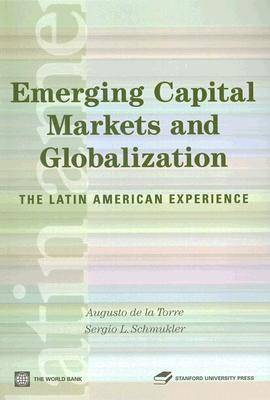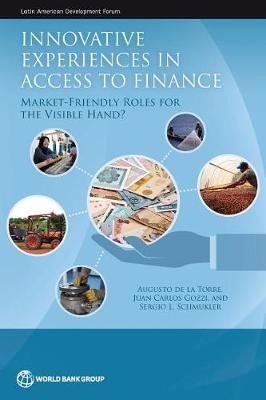Latin American Development Forum
3 total works
Emerging Capital Markets and Globalization
by Augusto de la Torre and Sergio Schmukler
Published 27 October 1960
This book sheds light on the analytical, empirical, and policy dimensions of a basic stylized fact - that the development of local capital markets in most of Latin America has been quite poor relative to other emerging economies and to global trends. Importantly, it discusses the implications for the capital market reform agenda going forward, emphasizing the need for revisions to the prevalent policy paradigm.
Innovative Experiences in Access to Finance
by Augusto de la Torre, Juan Carlos Gozzi, and Sergio L. Schumukler
Published 30 June 2017
Interest in access to finance and awareness of its importance have increased significantly since the early 2000s. Growing evidence suggests that lack of access to credit prevents many households and firms from financing high-return investment projects, which has an adverse effect on growth and poverty alleviation. Despite the increasing awareness of the importance of access to finance among both researchers and policymakers, there are still some major gaps in our understanding of the main drivers of access, as well as about the impact of different policies in this area.
This book aims to fill some of these gaps by discussing recent innovative experiences in broadening access to credit in Latin America. These experiences are consistent with an emerging new view that, while recognizing the central role of the public sector in improving the contractual and informational environment for financial markets, contends that there might be room for well-designed, restricted interventions in collaboration with the private sector to foster the development of financial markets and broaden access to them. The book analyzes some interesting experiences from Brazil, Chile, Colombia, and Mexico, most of which have led to financial innovation by developing new financial products and coordinating different players in the financial and real sectors to overcome barriers to access to credit.
The book provides an analytical framework to understand problems of access to finance and a discussion of the effects and optimal design of public interventions. It also discusses some open policy questions about the role of the private and public sectors in broadening access to finance in a sustainable and market-friendly manner.
Emerging Capital Markets and Globalization: The Latin American Experience
by Augusto de la Torre and Sergio Schmukler
Published 1 January 2007


